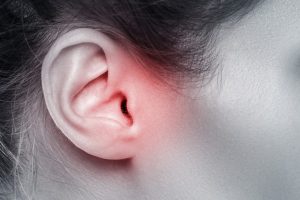Whether you are heading to the ocean, lake, or community swimming pool, don’t let the threat of swimmer’s ear wreck your plans to enjoy the water with your friends and family. Your ears are very tricky body parts.
Pain and blockage could transform an otherwise happy time in the water into a painful one. That being said, the best thing you can do to safeguard your ears is to ensure that your ears stay water-free when you’re out of the water.
How does swimmer’s ear occur?
Fungal and bacterial ear infections in your ear canal could occur from spending too much time swimming in the water. When you expose your ears to water for an extended length of time, water will collect inside the canal, usually trapped by earwax, so the canal remains damp; the perfect breeding ground for bacteria.
You will then feel pain and fullness, and your ear will turn red and itchy. But your ears could hurt in other locations as well, infection and trauma to your outer area, for instance. Similarly, the middle ear could develop an infection when your Eustachian tube swells and become inflamed due to allergens and bacteria.
The microbes will then breed; fluids will accumulate, and create painful pressure in your eardrum. When this happens, your eardrum might rupture. But while there’s a chance that your eardrum can heal itself, it’s best that you visit your ENT doctor in Denver right away just to be on the safe side.
Can you prevent swimmer’s ear?
The good news is that you swimmer’s ear is preventable. Consider the following tips to keep your ears dry when not swimming and alleviating pain if you develop swimmer’s ear:
1. Dry your ears promptly after swimming.
This will get rid of the potential bacteria breeding ground. Once you’re done swimming, use a towel to dry your outer ears and tip your head sideways to drain water from your ears.
2. Apply eardrops.
You can buy OTC eardrops in your local pharmacy or make your own. Mix a teaspoon of rubbing alcohol with a teaspoon of white vinegar and place the solution in a sterile bottle.
Use a dropper for squeezing about two to three drops of the solution in your ears prior to swimming. Make sure the solution reaches your ear canal. Drain excess solution by tipping your head sideways.
3. Manage your pain until you can visit your ENT doctor.

Warm your ear and try to reduce pressure. You can do this by placing uncooked rice inside a clean sock and securing it. Heat the sock inside the microwave for at least 30 seconds and apply on the affected ear. Make sure you can tolerate the warmth.
What other things should I keep in mind?
Although painful and bothersome swimmer’s ear doesn’t typically develop into a ruptured eardrum, if you fail to treat the infection, it can spread. Depending on your symptoms, your doctor might prescribe antifungal, steroid, or antibacterial eardrops to contain the infection.
It’s also vital to note that you shouldn’t take decongestants or antihistamines for swimmer’s ear as studies have shown that they won’t do anything, and could even be particularly harmful to kids.

